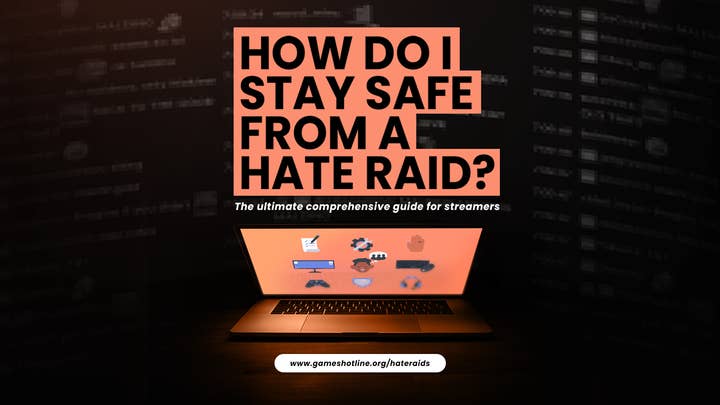Games And Online Harassment Hotline launches hate raid protection resource
"Streamers and moderators have created the most effective tools for mitigating the harm of hate raids," director Jae Lin told GamesIndustry.biz
The Games and Online Harassment Hotline has launched a new online resource aimed at content creators so they can protect themselves from hate raids.
The guide can be found on the Hotline's website, and gives a comprehensive overview of what livestreamers can do if they're the victim of a hate raid, but also what measures they can put in place to minimise the risks of it happening, and what steps to take if it has happened already.
Talking to GamesIndustry.biz, the Games and Online Harassment Hotline director Jae Lin commented: "Hate raids have been used to target Black, women, queer, and marginalized streamers for years. With a spike in this tactic over the past year, it's the streamers and community moderators who have created and shared the most effective knowledge and tools for mitigating the harm of hate raids.
"The keys and solutions always come from community and directly impacted folks; in this resource, we have gathered into one comprehensive guide security tips, stream set ups to reduce harm, chat and mod actions, community care, and more."
In its introduction, the guide reminds content creators that there is no "one right way to respond to harassment," adding you are "allowed to react to hate raids in any way that feels right to you."
It continues: "It’s OK to stop streaming, to keep streaming, to talk about it, to not talk about it, to feel angry, to feel numb, to feel scared, to feel anything at all."
We talked to Jae Lin last year about stamping out toxicity in the workplace. Reflecting on the Hotline's first year, they shared advice on how games professionals on any level can help stop discrimination and harassment.
The Games and Online Harassment Hotline was launched in 2020 by Feminist Frequency, and aims at providing text-based emotional support to help developers and players. We talked to founder Anita Sarkeesian at the time, who said that "part of the goal of the hotline is to encourage help-seeking behaviours."

